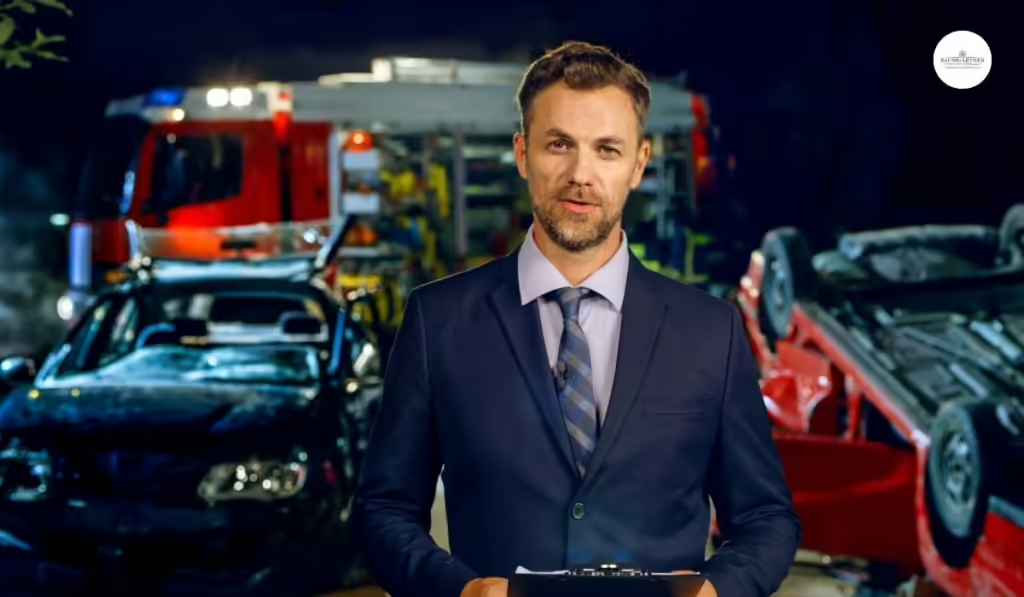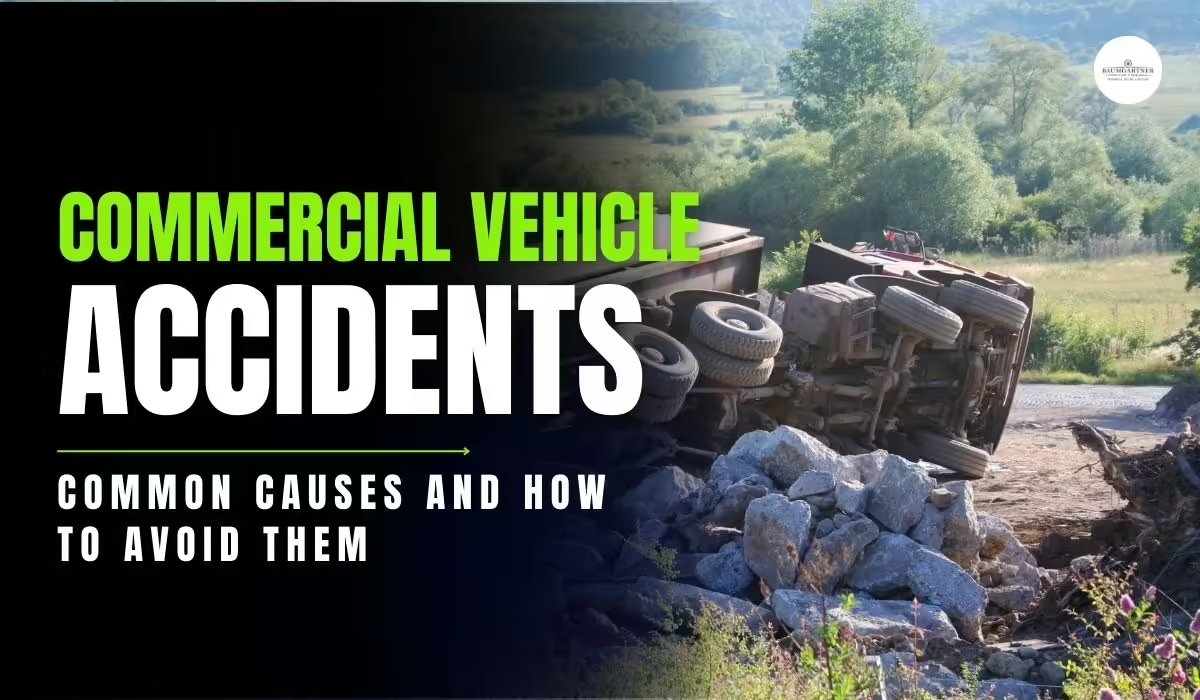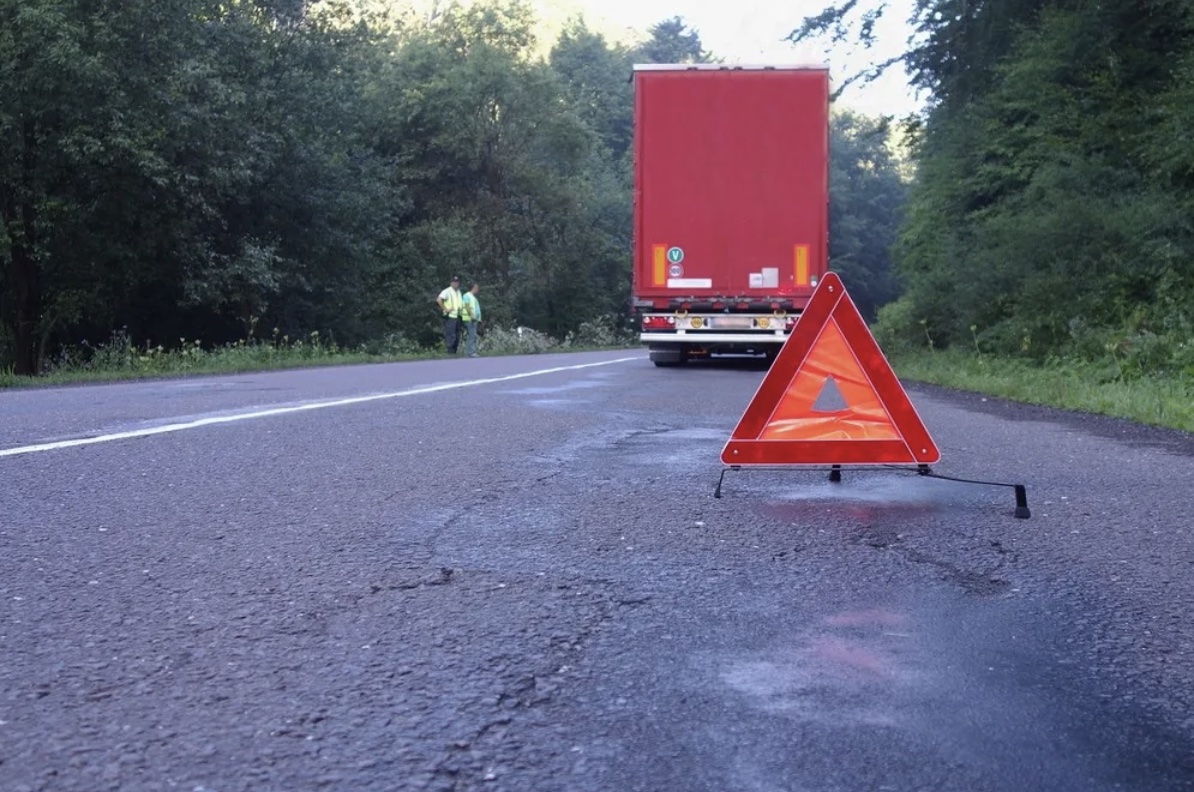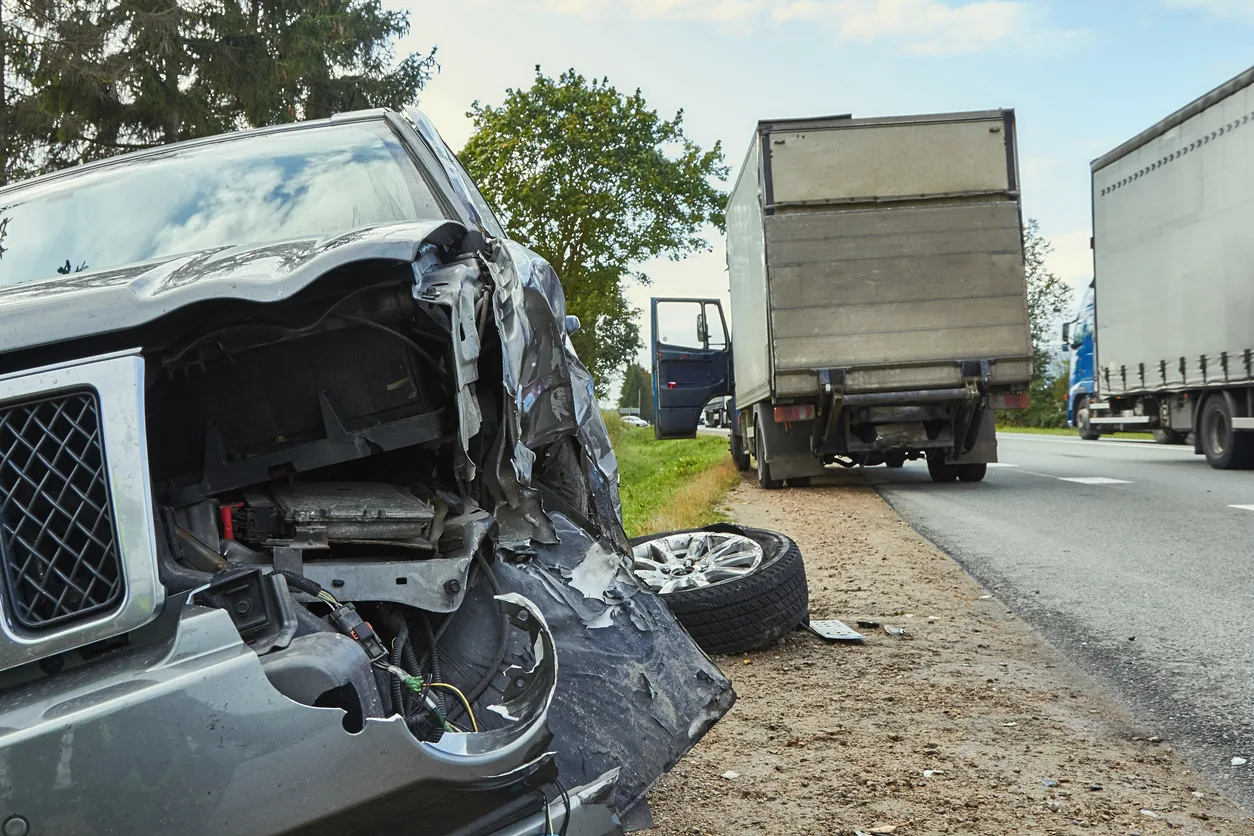Commercial vehicles play a crucial role in the economy by transporting goods and services over various distances, including handling commercial vehicle accidents. There are many truck or commercial vehicle crashes in Houston every day.
However, with their large size and heavy loads, they also pose significant risks on the road.
Commercial vehicle accidents can result in severe injuries, property damage, and even fatalities.
Understanding the common causes of these accidents and implementing strategies to avoid them is essential for ensuring road safety for everyone.
If you’ve been involved in a commercial vehicle accident and need legal assistance, consider reaching out to a personal injury lawyer in Houston.
Common Causes of Commercial Vehicle Accidents
Driver Fatigue
One of the leading causes of commercial vehicle accidents is driver fatigue.
Long hours on the road, tight schedules, and inadequate rest can lead to drowsiness and decreased alertness, impairing the driver’s ability to react quickly to changing road conditions.
Distracted Driving
Distractions such as using a mobile phone, eating, adjusting the radio, or daydreaming can divert a driver’s attention from the road.
In commercial vehicles, where drivers are often alone for extended periods, the temptation to engage in distracting activities may be higher.

Poor Vehicle Maintenance
Due to their frequent use and heavy loads, commercial vehicles undergo extensive wear and tear.
Neglecting regular maintenance such as brake checks, tire inspections, and engine tune-ups can lead to mechanical failures on the road, increasing the risk of accidents.
Speeding is a common factor in many commercial vehicle accidents.
Drivers may exceed the speed limit to meet tight delivery deadlines or engage in reckless driving.
However, driving at high speeds reduces the driver’s ability to react to hazards and increases the severity of accidents.
Inexperienced Drivers
Employing inexperienced or inadequately trained drivers can contribute to accidents.
Lack of familiarity with handling large vehicles, navigating challenging road conditions, and responding to emergencies can increase the likelihood of errors and collisions.
Adverse Weather Conditions
Inclement weather, such as rain, snow, fog, or high winds, can significantly impact the safe operation of commercial vehicles.
Reduced visibility, slippery roads, and poor traction increase the risk of side-swipe accidents if drivers fail to adjust their driving behavior accordingly.
How to Avoid Commercial Vehicle Accidents
Implement Comprehensive Training Programs
Companies should invest in comprehensive driver training programs that emphasize defensive driving techniques, fatigue management, and emergency response protocols.
Ongoing education and skill development help drivers navigate challenging situations safely.
Prioritize Driver Health and Well-being
Encourage drivers to prioritize their health and well-being by getting adequate rest, maintaining a balanced diet, and staying physically active. Implementing scheduling practices that allow for sufficient breaks and rest periods can help prevent fatigue-related accidents.
Enforce Strict No-Distracted Driving Policies
Enforce policies that prohibit drivers from engaging in distracting activities while behind the wheel.
Provide hands-free communication devices and encourage drivers to pull over in a safe location if they need to attend to non-driving tasks.
Conduct Regular Vehicle Inspections
Establishing a rigorous maintenance schedule for all commercial vehicles, including routine inspections and repairs, is crucial.
Ensure that brakes, tires, lights, and other essential components are in optimal condition to prevent mechanical failures on the road.
If you’ve been involved in a commercial vehicle accident and need legal assistance, consider reaching out to a personal injury lawyer in Houston.
Monitor and Limit Speeding
Install speed-limiting devices in commercial vehicles to prevent drivers from exceeding safe speeds.
Use GPS tracking systems to monitor driver behavior and provide feedback on speeding violations.
Emphasize the importance of adhering to posted speed limits at all times.
Stay Informed about Weather Conditions
Provide drivers with up-to-date weather forecasts and advisories to help them plan their routes and adjust their driving behavior accordingly.
Encourage drivers to exercise caution and discretion when encountering adverse weather conditions.
Importance of Commercial Vehicles in the Economy
Commercial vehicles are the backbone of the economy, facilitating the movement of goods and services across various distances.
From transporting raw materials to delivering finished products to consumers, commercial vehicles enable businesses to operate efficiently and meet customer demands.
Industries such as manufacturing, retail, agriculture, and logistics rely heavily on the timely and reliable transportation provided by commercial vehicles.
Without them, supply chains would grind to a halt, impacting economic growth and productivity.
Risks Posed by Commercial Vehicles
Despite their economic significance, commercial vehicles also pose significant risks on the road due to their large size and heavy loads.
Collisions involving commercial vehicles can result in severe injuries, extensive property damage, and even loss of life.
Passenger vehicles, pedestrians, cyclists, and other road users are particularly vulnerable in accidents involving commercial vehicles due to the disparity in size and weight.
Additionally, the financial costs associated with commercial vehicle accidents, including medical expenses, legal fees, and insurance claims, can be substantial and have far-reaching consequences for businesses and individuals alike.

The Human Factor in Commercial Vehicle Safety
While technological advancements such as vehicle safety features and telematics systems play a crucial role in enhancing commercial vehicle safety, the human factor remains paramount.
Drivers are ultimately responsible for operating commercial vehicles safely and responsibly.
Therefore, fostering a culture of safety within the transportation industry is essential.
This involves not only providing drivers with the necessary training and resources but also promoting attitudes and behaviors that prioritize safety above all else.
The Role of Regulations and Compliance
Government regulations and industry standards play a crucial role in regulating the operation of commercial vehicles and ensuring compliance with safety requirements.
Regulations cover various aspects such as driver qualifications, hours of service, vehicle maintenance, and load securement.
Compliance with these regulations is essential for minimizing risks and preventing accidents.
Companies that prioritize safety and compliance demonstrate their commitment to protecting their drivers, other road users, and the environment.
Contact the Commercial Vehicle Accident Attorney in Houston at Baumgartner Law Firm for Help
Commercial vehicles are essential for sustaining the flow of goods and services in the economy, but their operation comes with inherent risks.
Understanding the common causes of commercial vehicle accidents and implementing strategies to mitigate these risks is crucial for ensuring road safety for everyone.
By investing in comprehensive training programs, prioritizing driver health and well-being, enforcing strict policies, conducting regular vehicle inspections, monitoring speeding behavior, staying informed about weather conditions, and complying with regulations, companies can significantly reduce the likelihood of accidents and contribute to safer roads for all.
Ultimately, the safety of commercial vehicles relies on the collective efforts of drivers, companies, regulators, and other stakeholders working together to prevent accidents and protect lives. If you have been hurt in an accident with a commercial vehicle, contact Baumgartner Law Firm for a free consultation.
FAQs
Why are commercial vehicles important in the economy?
Commercial vehicles facilitate the movement of goods and services across various distances, enabling businesses to operate efficiently and meet customer demands.
What risks do commercial vehicles pose on the road?
Collisions involving commercial vehicles can result in severe injuries, extensive property damage, and even death, impacting economic growth and productivity.
What role do drivers play in commercial vehicle safety?
Drivers are ultimately responsible for operating commercial vehicles safely and responsibly. Therefore, this highlights the importance of fostering a culture of safety within the transportation industry.
How do regulations contribute to commercial vehicle safety?
Government regulations and industry standards regulate various aspects of commercial vehicle operation. Consequently, these regulations and standards ensure compliance with safety requirements to minimize risks and prevent accidents.
What steps can companies take to enforce safety measures for commercial vehicle drivers?
Companies can implement strict policies regarding driver behavior. Moreover, they can conduct regular safety audits, provide ongoing training, and incentivize safe driving practices.
Are there specific regulations governing the operation of commercial vehicles?
Yes, government regulations cover areas such as driver qualifications, hours of service, vehicle maintenance, and load securement to ensure safe operation and compliance with safety standards.
How do adverse weather conditions affect commercial vehicle operation?
Inclement weather can reduce visibility, create slippery road conditions, and affect vehicle traction, increasing the risk of accidents if drivers fail to adjust their driving behavior accordingly.
What should I do if I’ve been involved in a commercial vehicle accident?
Seek medical attention if needed. Additionally, report the accident to the authorities, gather evidence at the scene if possible (including photographs and witness information), and consider contacting a personal injury lawyer for legal assistance.
What are the potential consequences of commercial vehicle accidents for businesses?
Following a commercial vehicle accident, businesses may face financial repercussions such as increased insurance premiums, legal expenses, damage to reputation, and loss of productivity.
How can technology contribute to improving commercial vehicle safety?
Technology such as vehicle safety features, telematics systems, and driver-assistance technologies can help monitor driver behavior, provide real-time feedback, and mitigate risks on the road.
Are there initiatives in place to promote safer commercial vehicle operation?
Yes, industry organizations, government agencies, and advocacy groups often collaborate to develop and promote initiatives that enhance commercial vehicle safety through education, awareness campaigns, and regulatory enforcement. Consequently, these efforts are crucial in ensuring comprehensive safety measures are implemented across the industry.
What role do insurance companies play in commercial vehicle accident cases?
Insurance companies provide coverage for damages resulting from commercial vehicle accidents. Additionally, they may be involved in the claims process, investigations, and settlements to ensure fair compensation for all parties involved.
Contact an Award-Winning Commercial Vehicle Accident Attorney for Help
Contact the Houston personal injury law firm of Baumgartner Law Firm at (281) 587-1111.
6711 Cypress Creek Pkwy
Houston, TX, 77069













